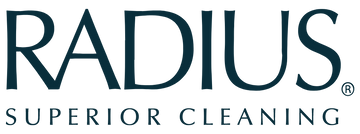Your bathroom sink is more than just where you wash your face, it’s ground zero for small habits that shape both your health and the planet. At RADIUS, we believe that eco-friendly living doesn’t mean large sacrifices, it often means choosing smarter, kinder oral care tools that do more good with less waste. Today, we’re sharing simple swaps and practices you can adopt starting at your sink. Because every small step adds up to big smiles—for you and the Earth.
Why Your Sink Matters
Many of us focus on recycling bottles and using energy-efficient bulbs—but overlook what’s happening at our sink. A toothbrush head that ends up in landfill every few months, toothpaste tubes that aren’t recyclable, floss containers made of non-recyclable plastic—these add up. Choosing products that are reusable, refillable, compostable, or have eco-conscious packaging helps reduce our environmental footprint. And when your tools are better for the planet, they often feel better and work better for your mouth too.
Step 1: Less Waste, Same Clean — Choose Replaceable Heads
One of the most effective eco-swaps you can make is using a toothbrush with a reusable handle and replaceable head. Instead of tossing the entire brush, you simply swap out the head when it’s worn. That reduces plastic waste dramatically.
RADIUS Replacement Heads (for sources like Source & TOUR brushes) are made with soft, plant- or vegetable-based nylon bristles, with handles designed to last. The reusable handle stays, you only change out the head. This way, you keep performance high, cost lower, and waste way down.
Also, the Big Brush Replacement Heads come in soft varieties, and the Big Brush handle is made to be kept forever—the head is what gets swapped when it wears.
By choosing these instead of full plastic disposables, you reduce material use—and packaging waste too.
Step 2: Floss Smarter—Go Vegan & Plastic-Free
Floss often gets overlooked in eco-conversations, but regular flossing is essential for dental health—and the floss choice matters.
The Vegan Sponge Floss from RADIUS is a great option. It expands between teeth, helping reach places regular floss may miss. It’s coated with organic coconut oil and erythritol which support enamel and reduce plaque, while the packaging is 100% plastic-free.
Choosing floss that’s vegan (if that aligns with your values) or with minimal, recyclable packaging means less landfill, fewer microplastics, and still excellent oral hygiene.
Step 3: Use Things That Last
Buying for durability and reusability is a smart investment. Handles made from quality materials, brushes with longer necks, soft bristles that don’t fray easily—all these increase your tool’s lifespan. Longer-lasting items mean fewer trips to the store, less manufacturing carbon cost, and less waste.
Also, when a replacement head is worn, don’t immediately throw away what’s left—see if it can be recycled properly. RADIUS’s designs help with that by making the non-bristle parts durable and separate.
Step 4: Natural Ingredients = Gentler to Mouth & Environment
Environmental health starts with what you put in and on your body. Natural, sustainably sourced ingredients tend to have less impact—from water quality, soil condition, to wildlife.
For instance:
-
Using floss coated with virgin coconut oil and carnauba wax—both plant-based and renewable.
-
Choosing toothpaste with natural flavoring rather than synthetic dyes or harsh chips.
-
Bristles from vegetable or plant-based nylon that reduce reliance on fossil fuels.
These choices preserve ecosystems (for example, coconut oil grown sustainably), reduce chemical runoff, and are easier on your teeth and gums.
Step 5: Rinse, Brush, Save Water
Water conservation is another sink-side habit. Here are some small adjustments:
-
Don’t let the water run while brushing. Wet the brush, turn off the tap, and rinse with a small cup or splash.
-
If possible, use a timer (or a 2-minute timer on your phone) so you don’t over-brush or brush while letting water run idle.
-
When rinsing after meals—especially if you haven’t brushed yet—consider a small mouth rinse with water to wash away crumbs; brush properly when you return home.
These seemingly minute behaviors save gallons of water monthly.
Step 6: End-of-Life Actions (Recycling & Composting)
It’s not just about using less—it’s about ending responsibly. When toothbrush heads are used, or floss is fully used up, sending items to the right recycling stream matters.
-
Replace heads and recycle the packaging if your local facilities allow.
-
Compost (or properly dispose) any parts made from biodegradable materials.
-
Keep the brushes of lasting handles rather than discarding them whole when only bristles wear.
By being aware of where your products go next, you close the lifecycle loop.
Two RADIUS Products That Walk the Green Talk
Here are two options that align well with eco-conscious living at the sink:
-
RADIUS Replacement Heads (2 Pack — Source & TOUR)
These provide the option to keep your brush handle and just replace the worn head. Soft vegetable-based bristles help protect gums while cutting back on waste. -
RADIUS Vegan Sponge Floss
Expanding nylon floss coated with organic coconut oil and erythritol, packaged in plastic-free materials, gives a deep clean without harming the planet.
These aren’t just eco-friendly—they’re performance-friendly too.
Wrap-Up: Big Smiles from Small Changes
Eco-friendly living might sound like a big change, but it starts with things as simple as what’s in your bathroom cabinet. Reusable handles, replaceable heads, natural floss, and using less water—these small shifts give double benefit: healthier mouths for you and fewer environmental costs for the planet.
At RADIUS, we’re committed to making products that don’t force you to choose between clean teeth and clean conscience. Every time you choose a replacement head over a disposable brush, or a plant-based floss in recyclable packaging, you’re making a difference.
Because caring for your smile should also mean caring for the earth beneath your feet.

